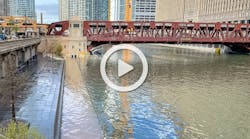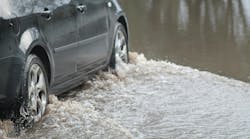Montclair, New Jersey, Amends Storm Water Control Law
The Montclair Township Council is amending its storm water control law.
This amendment will impact situations of property owners improperly diverting water from their properties onto neighbors’ lots in New Jersey, reported Montclair Local News. This amendment comes after residents reported severe flooding in the areas of Burnside Street, Yantacaw Brook and South Park Street.
According to Deputy Mayor Bill Hurlock, he has been working on this ordinance for years due to the frequency of storms and flooding in Montclair, reported Montclair Local News.
The ordinance would create a code violation for any instance in which a violation “artificially redirects or augments the flow of storm water runoff onto adjacent property,” according to Hurlock, reported Montclair Local News. “This will help mitigate the issue and will give homeowners a recourse that they can use when this happens,” Hurlock said.
Code states violations result in: up to $2,000 in fines; imprisonment for up to 90 days; or community service not exceeding 90 days.
According to Montclair Local New, the ordinance had a first reading on May 17 and is scheduled for a second reading, public hearing and final vote on June 13.
“We must be good neighbors to each other and take responsibility for water management on our properties. Hurricane Ida, like storms before, showed us how important it is to take storm water management seriously,” said Councilman Peter Yacobellis, who co-sponsored the amendment, reported Montclair Local News.
Bond for $27,000 for design, study and engineering expenses in connection with the South Park Street culvert were approved. South Park Street and Bloomfield Avenue area businesses were flooded during tropical storm Ida and previously struggled with flooding due to the culvert, reported Montclair Local News.
Yacobellis suggested: creating maximum impervious surface standards throughout the township, which the township's R-1 zones are of major concern; suggesting that a more permeable or porous pavement be used in all zones; the use of gravel should be excluded; and creating a storm water utility should be similar to the current sewer and water utilities.
“The 2019 Clean Stormwater and Flood Reduction Act enabled Montclair and other municipalities to create storm water utilities which could be used to assess a proportional tax relative to the total impervious area of a specific property, including parking lots, driveways and building roofs that are impermeable to storm water runoff. The revenues from such a tax could then be used to improve storm water infrastructure including increasing the size and capacity of our many insufficient culverts,” said Yacobellis, reported Montclair Local News.


